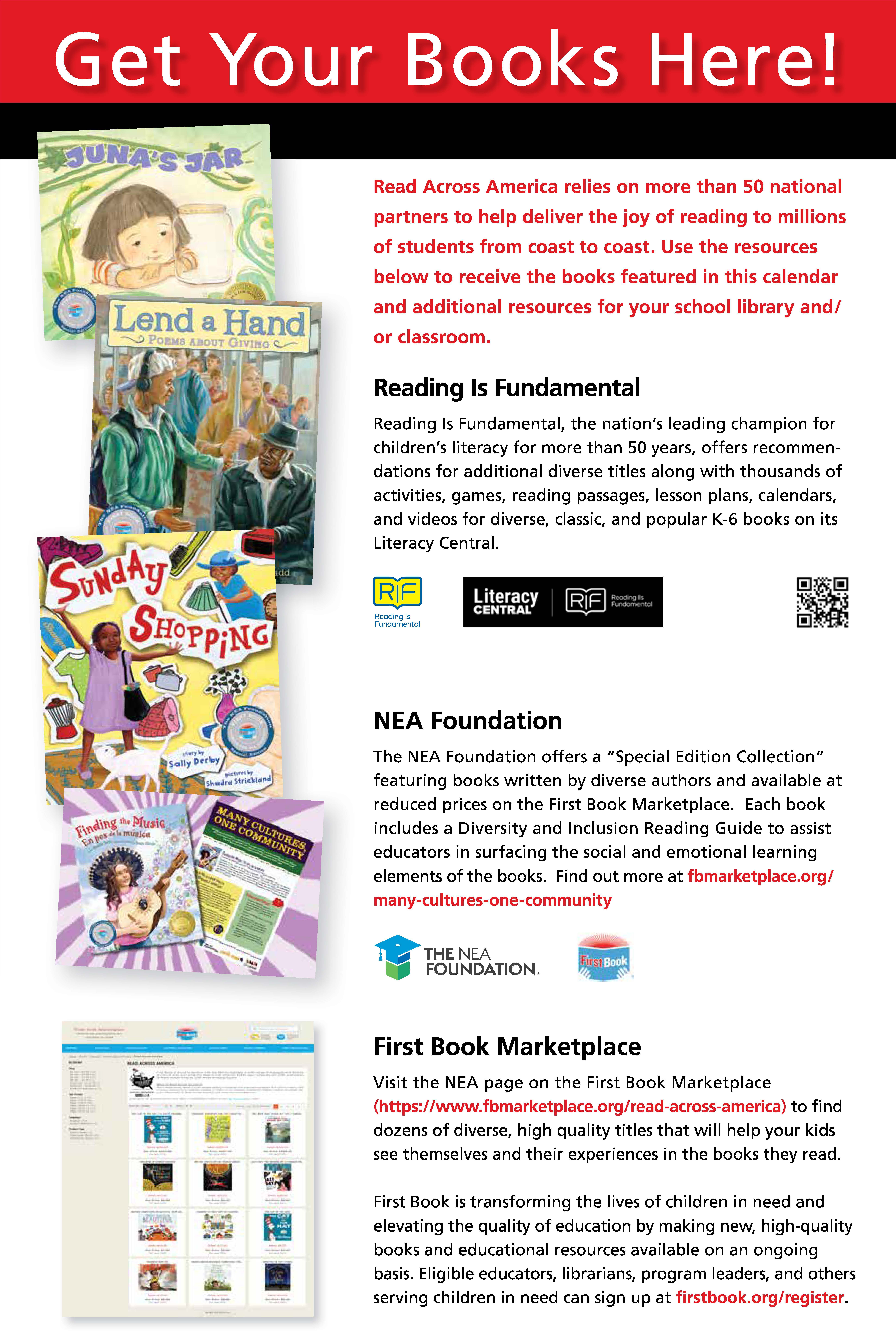March is National Reading Month: It’s Never too Early to Start Reading to Your Child
Join the Maryland State Department of Education’s Division of Early Childhood, the National Education Association (NEA), Reading is Fundamental, schools, libraries and providers nationwide to celebrate National Reading Month!
As part of the celebration, educators are encouraged to invite parents and families to their learning environment on Friday, March 1, for NEA’s Read Across America Day. More than 45 million young and old readers are expected to participate in this annual event.
 The goal of the one-day event is to encourage everyone to pick up a book and read. Educators have hosted creative Read Across America Day reading events such as book lovers’ balls and overnight read-a-thons with parents.
The goal of the one-day event is to encourage everyone to pick up a book and read. Educators have hosted creative Read Across America Day reading events such as book lovers’ balls and overnight read-a-thons with parents.
Literacy skills and a lifelong love of reading begin at birth. Parents and families play an essential role in developing children’s early reading skills as their first teachers.
According to the National Commission on Reading, “The most significant factor influencing a child’s early education success is an introduction to books and being read to at home prior to beginning school.”
Reading aloud to children increases their vocabulary, promotes language skills, strengthens cognitive development and creates a special bond between the reader and child. Parents, families and providers can work together to promote essential reading skills in young children.
The NEA recommends the following tips for reading to infants and toddlers:
- Snuggle with children and their favorite blanket or toys as you read.
- Read with expression using different voices for different characters.
- Emphasize rhythms and rhymes in stories. Give your toddler opportunities to repeat rhyming phrases.
- Use pictures to build vocabulary by varying objects and their colors.
- Use pictures to develop speaking vocabulary by talking about what is shown.
- Encourage children to repeat what you say or comment on it.
- Look for books that are about things that interest your toddler. For example, does your child like cars, insects, or animals?
- Make reading a habit for bedtime, after lunch, or after naptime.
- Give children an opportunity to choose their own books.
- Read stories repeatedly. Children enjoy repetition, which helps them become familiar with how stories are organized.
Here are some resources available to both families and educators to help inspire children to pick up a book and become lifelong readers:




